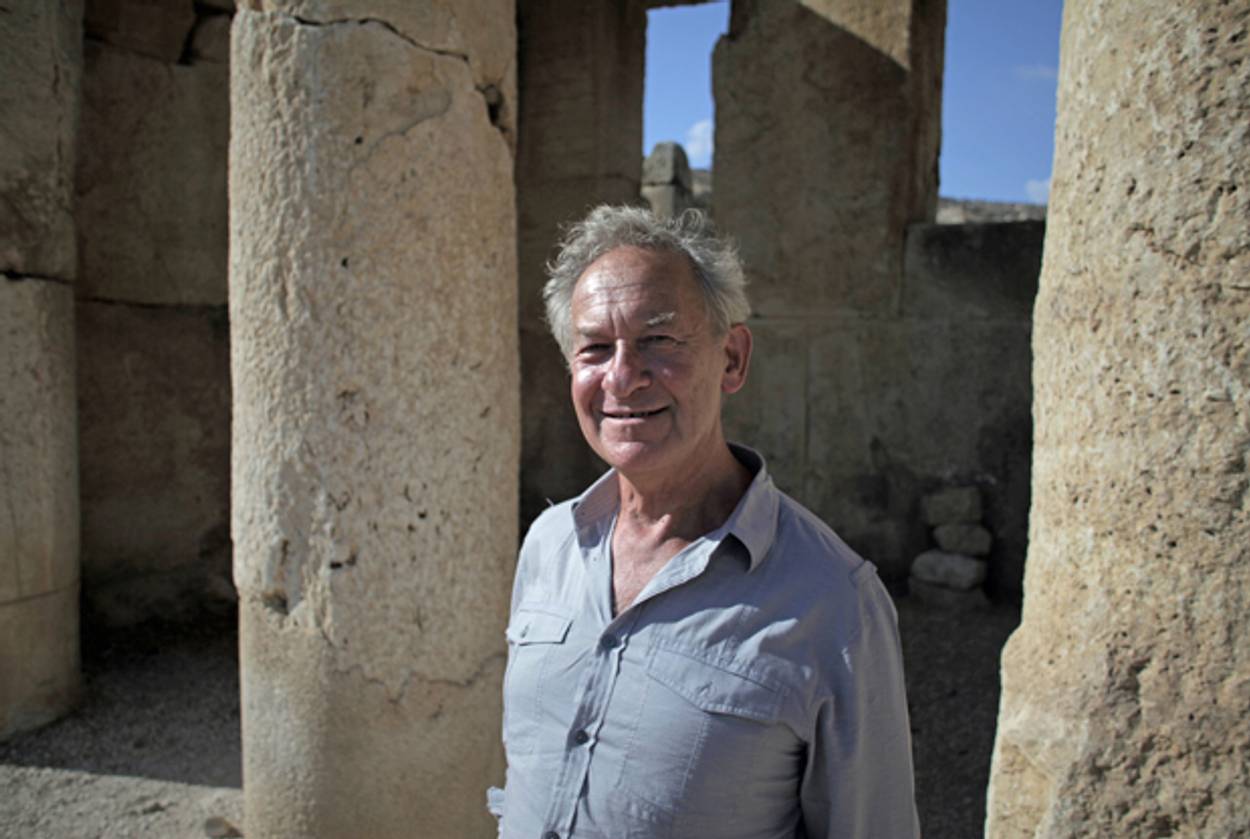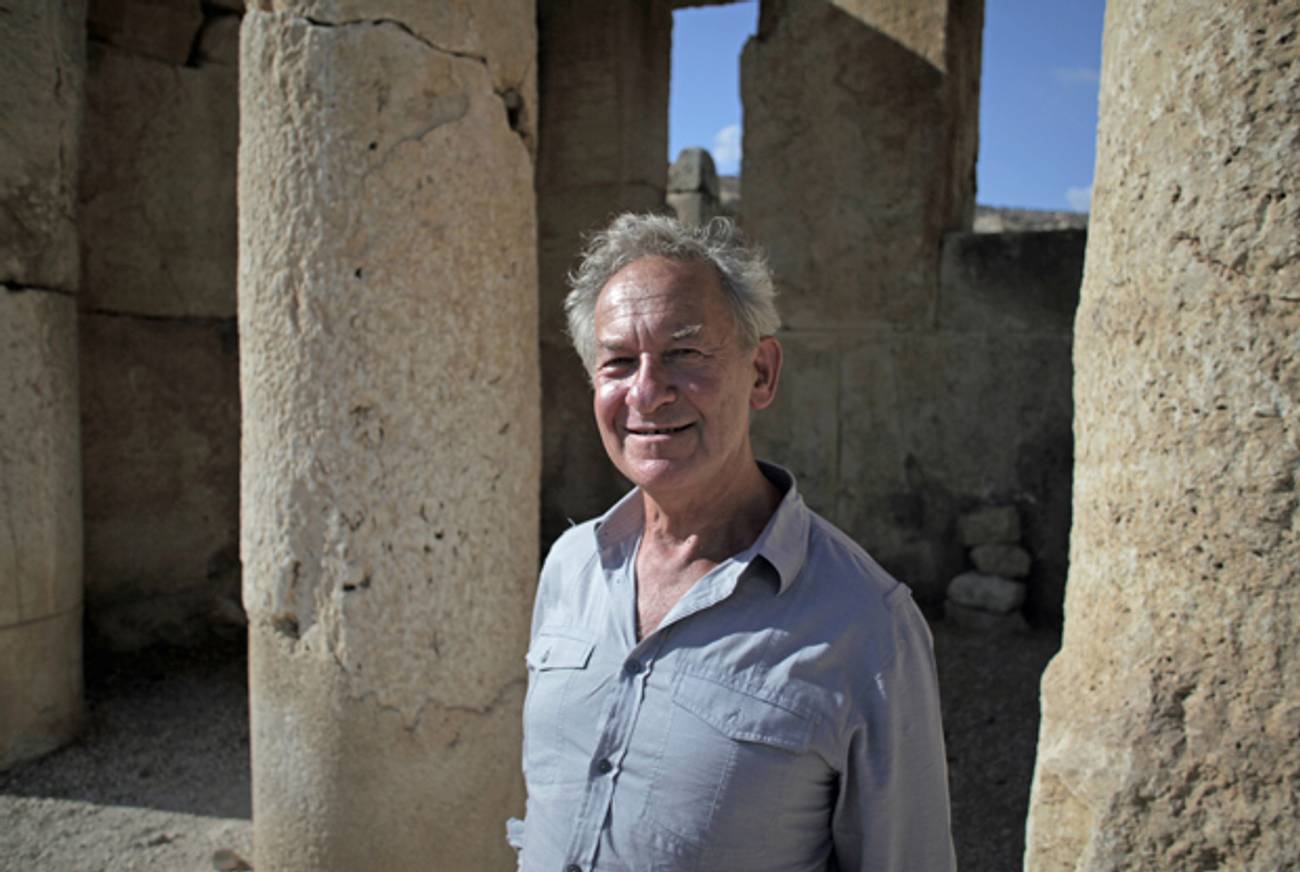Simon Schama Discusses His New Documentary
The Story of the Jews, a five-part TV series, premieres this week on PBS




The clear takeaway from last night’s impassioned discussion between Jonathan Safran Foer and Simon Schama at 92Y was that Judaism is the story of people shouting over each other—lovingly so.
There to discuss Schama’s new documentary, The Story of the Jews—which premieres tonight on PBS and aired in Britain last year (Schama joked that the Haaretz review of the film opened by saying that after this, “no one will be able to say for at least another decade that the BBC has an inherent bias against Israel”)—the evening quickly turned into the Simon Schama show. The event can only be described as part memoir (we heard stories from his days in cheder), part stand-up (he told every old Jewish joke in the book, nailing the punch lines), and part history lesson (that was why we were there in the first place). Foer played the straight man to Schama’s enthusiastic tales and barely got a word in edgewise—eventually, unable to interrupt Foer, Schama began interrupting himself, telling stories about stories, creating his own layered Talmud of Jewish history.
Last week in Tablet, Adam Kirsch wrote, “one of the single achievements of The Story of the Jews is that it avoids putting the Holocaust at the center of the story.” Indeed, Schama emphasized throughout the talk, as well as to Kirsch, that “making The Story of the Jews was an opportunity to broaden the public understanding of Judaism.” His hope is that in presenting Jewish history as not just framed by Holocaust or the Israel-Palestine conflict he can change the way non-Jews enter a subject area that has important universal implications.
Oddly, the two clips screened for the audience were both Holocaust themed. One showed the moment each year on Yom Hashoah in Israel when a siren is sounded and everyone is silent. Using sliced-together footage from Israeli film students, we see Schama and others take a moment to remember those killed in the Holocaust. Though certainly moving, the clip won’t be anything new for most Jewish viewers and doesn’t take advantage of all that Schama has to offer in telling this story.
Here’s hoping that tonight’s installment of the five-part series is as enthralling as Kirsch implies, and as Schama’s story-telling abilities suggest: The evening ended with the standard Q-and-A, with many questions focusing on anti-Semitism and “predications” (Schama declined to comment on the latter). But the first question of the evening—the potentially banal “If time travel were possible, where in Jewish history would you visit?” became a 10-minute-long tale of 16th-century Jewish show business in which Schama told the story of the first-known Purim spiel. Now I want to visit Mantua in the 1500s.
Miriam Krule is on the editorial staff of Slate Magazine where she edits the religion column Faith-Based. Follow her on Twitter @miriamkrule.
Miriam Krule is on the editorial staff of Slate Magazine where she edits the religion column Faith-Based. Follow her on Twitter @miriamkrule.